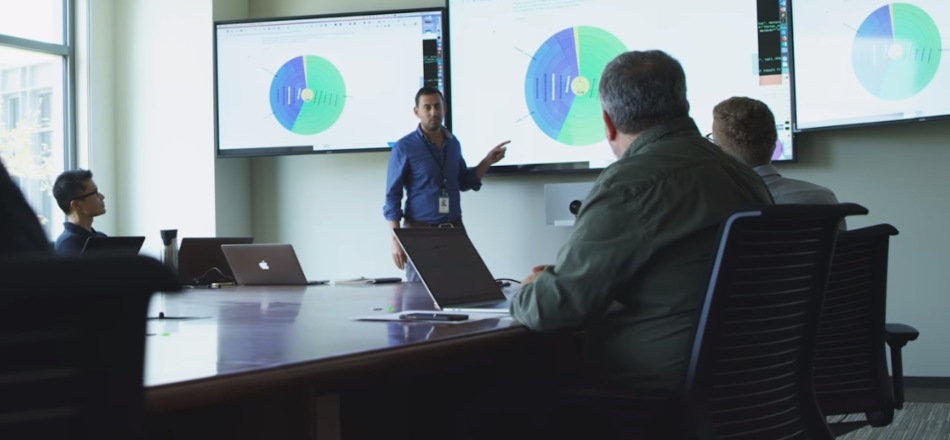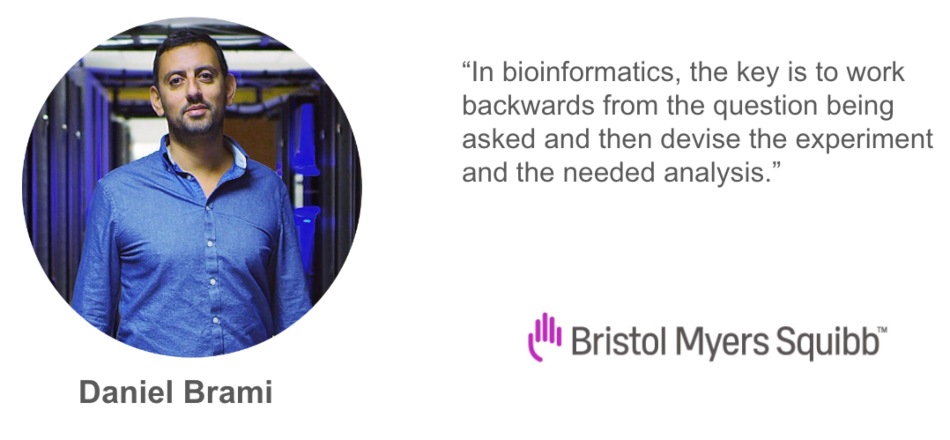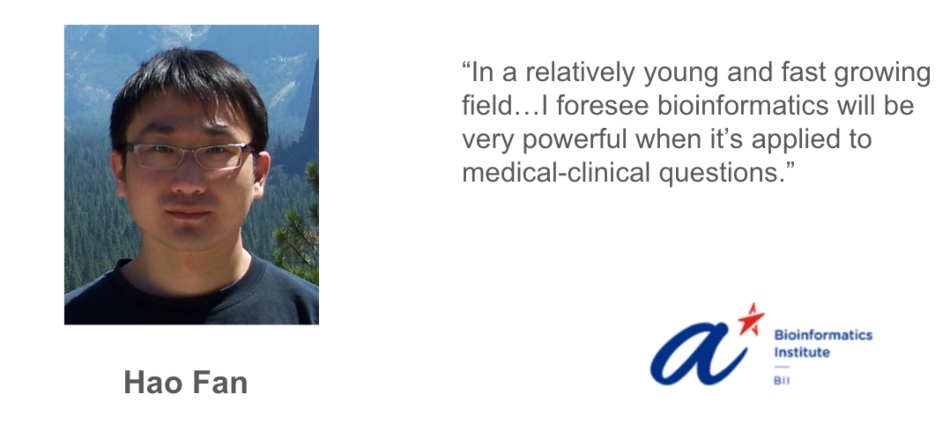

Freelance Life Sciences journalist supporting technological and scientific solutions through content creation and international expansion.
The early stage of bioinformatics market and the high complexity of the discipline, make experienced bioinformaticians still rare to find, and even more the ones who can combine business expertise, such as Daniel Brami, IT Business Partner for Genomics and NGS Data at Bristol-Myers Squibb, and previously several years working at Illumina. We have talked with him to better understand this game changer area.
Not sure about deep learning with regards to NGS, but definitely AI. The engine for growth will be availability of more data, with its crucial metadata combined with capacity to process it.
In bioinformatics, the key is to work backwards from the question being asked and then devise the experiment and the needed analysis. Only limited applications can be democratised beyond the interest of the scientist and developers. If that’s the case, the interest lies in the result, not in the analysis, so that must be abstracted. For the remaining applications, bioinformatics tools are becoming more accessible and easier to use thanks to cloud infrastructure, and open source science with focused projects.

If I were an investor, I would make sure what I’m funding is part of an end-to-end solution that also includes a diagnostic test. Generic tools are not a safe bet.
Governments are also paying a lot of attention on how to turn their big data into smart data for scientific progress. The US is going to allocate $300 million to build and support a National Bioinformatics Infrastructure. We also can find very solid bioinformatics national institutions such as in Sweden ,Germany or India.
We also talk with one of the leading members of BII, The Bioinformatics Institute of Singapore, the expert bioinformatician Hao Fan, Senior Principal investigator. BII belongs to the Agency for Science, Technology and Research in Singapore (A*STAR) and serves the country as a computational biology research and postgraduate training institute.
Not all of them, 50% of software in my lab are commercial. In many cases, a bioinformatics tool can be free for academy, and not free for industry.
Yes and no. It is a relatively young and fast growing field. I think some conventional bioinformatics can become easier while new bioinformatics techniques will be invented and still take efforts to gain.
Bioinformatics is on biology and related fields such as pharmacology, etc. So development in these fields are the basis of potential growth of bioinformatics. The tools (not aims) you mentioned above will definitely contribute. Besides them, I feel quantum computing could be another important area.

I think yes for some research but not necessary for very new areas where not much knowledge is available.
I would invest more into AI.
The development and ubiquity of bioinformatics seems unstoppable, mainly because the possibility to create simulations of human body mechanisms and potential drug interactions saves a lot of time and resources.
It seems likely that behind many scientific innovations there will be a specialised software program and the vision of a bioinformatician. A new generation of researchers is closer to access to all the research and resources needed for solving the most difficult challenges related to our health and our planet without moving from their computer screen.
© 2021 Insciter. All rights reserved. Insciter is a technology application which serves as a search engine and data provider
Trading name of Layer IV Limited. Registered in England and Wales No. 11737675